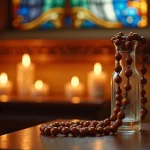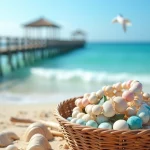Viking rings embody a rich tapestry of history, culture, and artistry that captivates modern audiences. Each piece tells tales of ancient seafarers, showcasing intricate designs inspired by nature and mythology. From the symbolism of Thor’s Hammer to the craftsmanship that reflects social status, these rings connect us to a time when personal adornments held deep meaning. Discover how these timeless treasures continue to inspire and resonate in today’s fashion landscape.
The Enduring Legacy of Viking Rings
Viking rings encapsulate a world of history and symbolism, providing insight into the values of a storied civilization. The journey of Viking rings begins in the late 8th century, extending to the early 11th century, crafting a timeline adorned with influential artistry and steadfast cultural significance. As you explore the rich history of viking rings, it’s essential to select your viking ring with consideration of the materials and craftsmanship that speak volumes about the wearer’s social status and personal beliefs.
In parallel : Elevate your look with the latest techwear hoodies
These pieces transcended mere adornment; they were tokens of wealth, status, and allegiance. Materials like silver, gold, and bronze were intricately worked to showcase both Viking beliefs and the artisan’s skill. Each ring’s design could reference mythological creatures or gods, such as Odin or Thor, employing symbols of protection or power to infuse deeper meaning into personal adornments. Knotwork patterns, a common feature, symbolized interconnectedness within the physical and spiritual realms.
The influence of Viking rings has not waned. Modern interpretations blend historical designs with new artistic touches, allowing these cultural artefacts to resonate with contemporary wearers who appreciate the fusion of heritage and style.
Also to discover : Explore budget-friendly techwear jackets for all your outings
The Craftsmanship and Design of Viking Rings
Intricate Techniques in Viking Ring Craftsmanship
The craftsmanship of Viking rings is renowned for its precision and intricate artistry. Viking artisans employed advanced metalworking techniques reflective of their era. Using materials like silver, gold, and bronze, they created rings that were not only beautiful but also symbols of strength and spirituality. Techniques such as casting, engraving, and inlaying were popular, allowing craftsmen to incorporate Viking ring engravings with great detail. These engravings often included runes that were rich in meaning and signified magical protection or blessings.
Popular Styles and Motifs Found in Viking Rings
Popular styles of Viking rings feature a multitude of motifs, drawing inspiration from nature and Norse mythology. Animal motifs like serpents and wolves symbolized power and wisdom. Deities and mythological elements, such as the iconic Mjolnir or World Tree designs, conveyed spiritual beliefs and connections to the divine realms. These motifs weren’t merely decorative; they represented the wearer’s identity, social status, and beliefs.
The Importance of Engravings and Personalization
Viking ring engravings played a pivotal role in personalization. They transformed each ring into a unique artifact bearing the cultural symbolism of Viking heritage. Inscriptions, often in runic alphabets, carried messages or blessings, enhancing the personal connection of the owner to their spiritual and cultural roots. The personalization ensured that each ring resonated with its wearer, making it a cherished piece of both heritage and art.
Modern Interpretations and Cultural Revival
The Resurgence of Viking-Inspired Jewelry in Today’s Fashion
With the growing interest in historical aesthetics and cultural heritage, Viking rings are experiencing a remarkable resurgence. These pieces, rich in Viking jewelry history, embody both ancient artistry and contemporary flair. Fashion enthusiasts are drawn to their unique blend of the past and present, with Viking jewelry trends in 2024 showcasing intricate designs inspired by age-old craftsmanship.
Guidelines for Buying Authentic and Handmade Viking Rings
When buying handmade Viking rings, authenticity is key. Look for authentic Viking rings crafted by artisans who respect the original techniques and materials. The use of materials like silver and bronze is a nod to historical craftsmanship of Viking rings, ensuring that each piece remains true to its roots. Opt for workshops or creators who emphasize handmade methods and prioritize historical significance.
Current Trends in Viking Jewelry and Their Cultural Impact
Modern interpretations of Viking rings reflect a broader cultural revival, with designs integrating traditional symbols like runes and animal motifs. These elements are not just aesthetic choices; they carry the deeply rooted cultural symbolism of Viking rings. This resurgence highlights a renewed appreciation for Norse mythology and its influence on contemporary design, marrying ancient symbols with modern jewelry aesthetics.
Symbolism and Meanings in Viking Rings
Understanding the Role of Runes and Their Powers
Viking rings often feature runes as central elements, each symbolizing distinct powers and attributes. These ancient letters were more than just an alphabet; they were thought to carry mystical properties. Runes like Fehu, symbolizing wealth and prosperity, or Algiz, denoting protection, were commonly engraved into rings to invoke these specific energies. The significance of runes in Viking rings extends beyond aesthetics, serving as conduits of spiritual strength for the wearer.
Common Animal Motifs and Their Symbolic Meanings
Animal motifs were prevalent in Viking jewelry, each carrying unique meanings deeply tied to Norse mythology. Wolves, emblematic of strength and cunning, were frequently associated with figures like Loki. Serpents, symbolizing transformation and rebirth, highlight the Vikings’ connection with natural cycles. These motifs provided wearers with symbolic traits believed to enhance personal attributes or offer protection. Understanding the symbolism of animal motifs in Viking jewelry unveils their powerful role in expressing cultural identity and beliefs.
How Norse Mythology Influences the Designs and Significance of Viking Rings
Norse mythology remains a significant influence on the designs of Viking rings, echoing tales of gods, battles, and cosmology. Pieces such as the Mjolnir, representing Thor’s hammer, stand as tokens of strength and divine protection. This allure of Norse mythology intertwines with the craftsmanship of Viking rings, ensuring they are both cultural artifacts and artistic expressions. Rings adorned with mythological symbols connect the wearer with legendary pasts, infusing modern jewelry with ancient stories and values.











